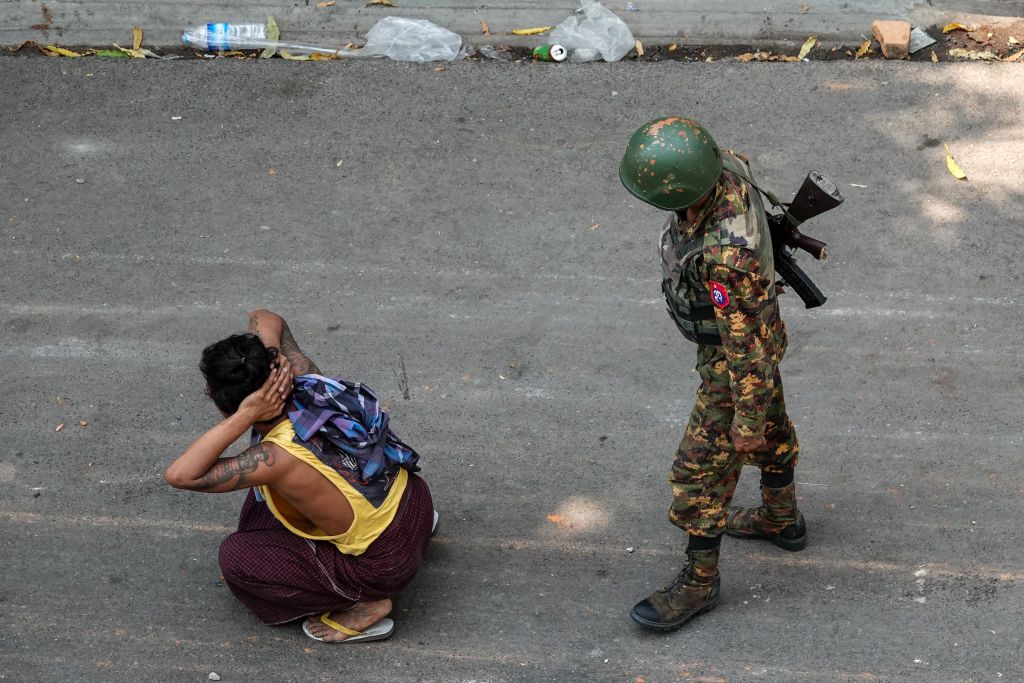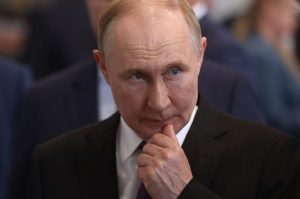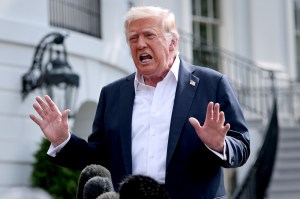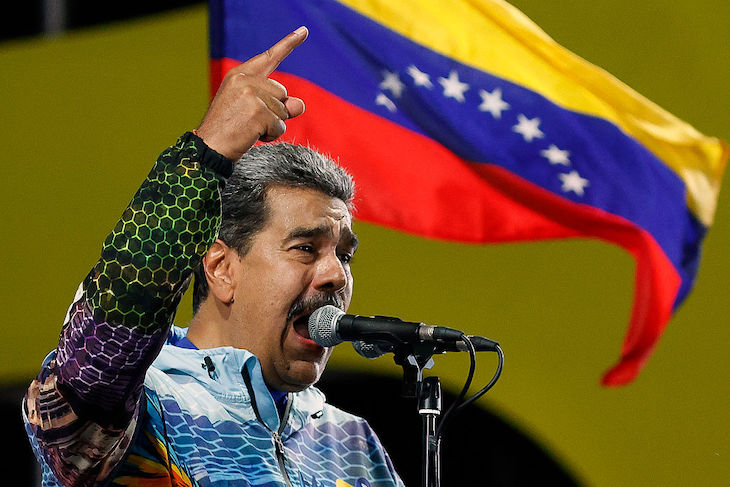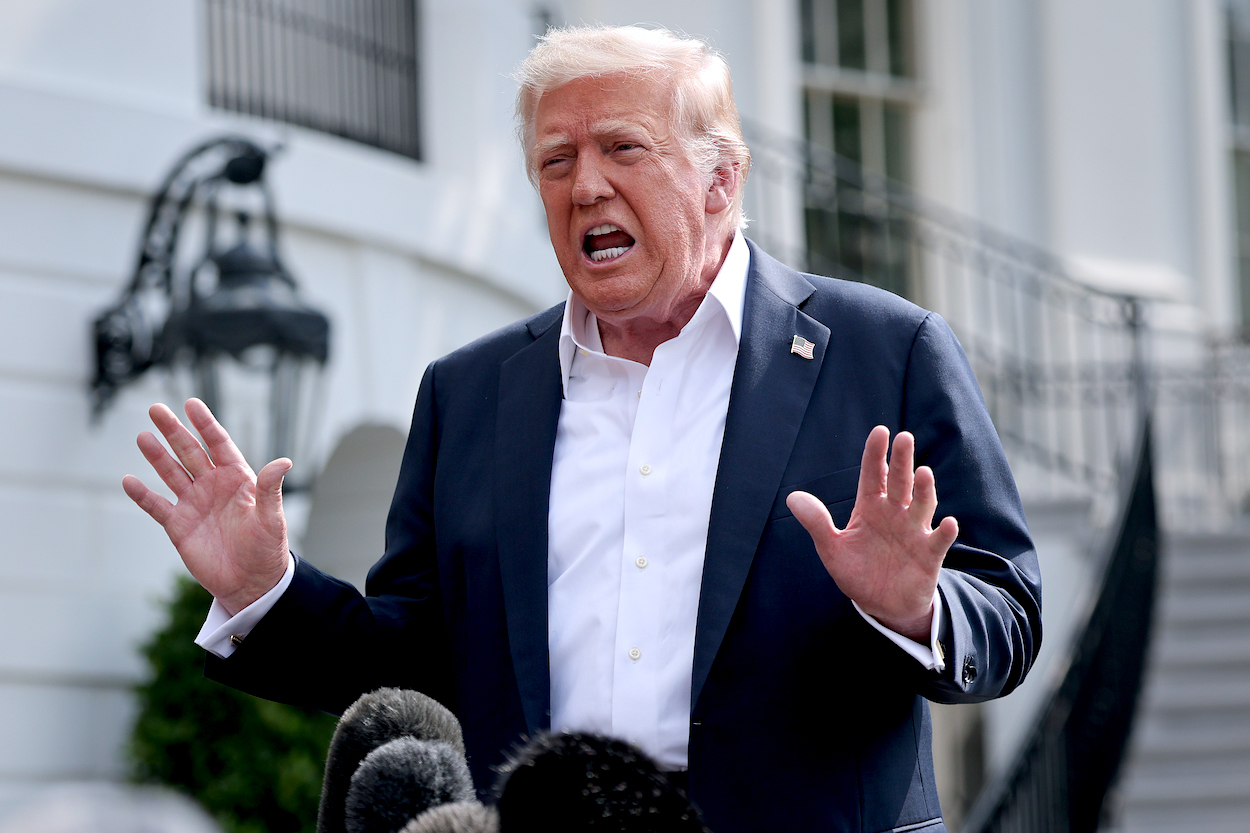The killing fields of southeast Asia are tragically alive and kicking. Pol Pot, the butcher of Cambodia, may be long cremated. But the military in Myanmar are maintaining his heinous ways. On Saturday, they indiscriminately gunned down over 100 people, including children. It was the bloodiest sequence in two months of continuous brutality, which has led to the deaths of at least 400 civilians. The demonstrators’ only crime has been to object to the unlawful overthrow of an elected government by the murderous men in uniform. The khaki has tragically trampled over this land of rich natural resources for much of its existence since independence from Britain in 1948.
‘The continuing military crackdown is unacceptable and demands a firm, unified and resolute international response’, the United Nations secretary-general António Guterres has said. Joe Biden called it ‘absolutely outrageous’. Britain and the European Union joined the chorus of condemnation. But to no avail.
If the massacre on Saturday was not sufficiently barbaric, there are reports that security men opened fire at a funeral for one of the victims a day later. Yet the UN and western world has failed to punish this savage conduct. Myanmar’s northern neighbor and benefactor China is a steadfast ally of the Tatmadaw, as the former’s armed forces are called. Now Russia has cruised in to consolidate ties with Myanmar.
While trigger-happy troops were mowing down innocents, Armed Forces Day was being celebrated with a parade in Myanmar’s otherwise ghost-like capital Naypyitaw. Seven Asian nations sent military attaches at their embassies to attend. Moscow notably despatched deputy defense minister, Alexander Fomin, to lend his presence. This is expected to translate into Russia fortifying the junta with an increased supply of weaponry.
The West’s efforts to restore the Aung San Suu Kyi-led government have been impaired by Japan and India dragging their feet and division within the Association of South East Asian Nations (ASEAN). Tokyo has dithered in its response to the coup d’etat. After Saturday’s bloodbath, its defense chief joined his counterparts in Australia, Canada, Denmark, Germany, Greece, Italy, the Netherlands, New Zealand, South Korea, Britain and the US to issue a unprecedented joint statement which condemned the ‘use of lethal force against unarmed people by the Myanmar Armed Forces and associated security services’. But Japanese economic commitment in Myanmar — the downsizing of which could rattle the military dispensation — remain undiminished.
India, which shares a 900-mile long border with Myanmar, has faced an uphill climb for 30 years to compete with China’s ever-expanding influence over Naypyitaw. New Delhi’s present calculation is to thwart Beijing exclusively exploiting the Myanmar military’s diplomatic isolation. It is also wary of unconditionally supporting Aung San Suu Kyi, as it did three decades ago, and thereby paying the price of the Tatmadaw retaliating by providing succor to separatists in northeastern India.
Behind the scenes, the US is endeavoring to establish accountability in order to bring to book the generals responsible for the abhorrence. A State Department spokesperson told me:
‘The United States is the largest donor to the UN’s International Investigative Mechanism for Myanmar, which is mandated to collect evidence of the most serious international crimes and violations of international law and prepares files for criminal prosecutions.’
The Biden administration holds the key to persuading Facebook to release data on those allegedly committing genocide against Myanmar’s minority Muslim Rohingyas in 2017. The US, though, has embarked on contemporaneously confronting Russia and China for the first time in nearly half a century. In 1972, America’s principle adversary was the Soviet Union, of which Russia was the central component. The Chinese were insecure after a bruising border stand-off with their communist forerunner in 1969. In such a climate, President Nixon extended a hand of friendship to their leader Mao Zedong to minimize China’s hostility towards Washington. With the collapse of the Soviet Union in 1989, the US had instituted a unipolar world in which both threats had been considerably neutralized.
Today, China, which was economically in dire distress before it was converted into exporter to the world by the West, is an economic behemoth. Russia, with its cyber warfare capability, has reemerged as a threat. Donald Trump engaged in a populist trade war with the Chinese which he didn’t win. His strangely obsequious behavior towards Vladimir Putin debilitated the US in the eyes of the world.
All this means that a reassertion of American authority — as espoused by Biden’s quite publicly stated position — is reassuring for the US’s traditional allies. At the same time, such a stance curbs cooperation from China and Russia on a matter like Myanmar. Washington’s month-long presidency of the UN Security Council (UNSC) concludes on March 31. It is in other words highly unlikely that a consensus will be reached by this body to issue a meaningful ultimatum to the Tatmadaw before this date.
In April, the mantle of UNSC president-ship shifts to the shoulders of Vietnam, which had been identified with favoring inaction at the forum. In May, the chair will be occupied by China. It’s safe to say that Myanmar’s murderous men in uniform will be pleased.
This article was originally published on The Spectator’s UK website.



